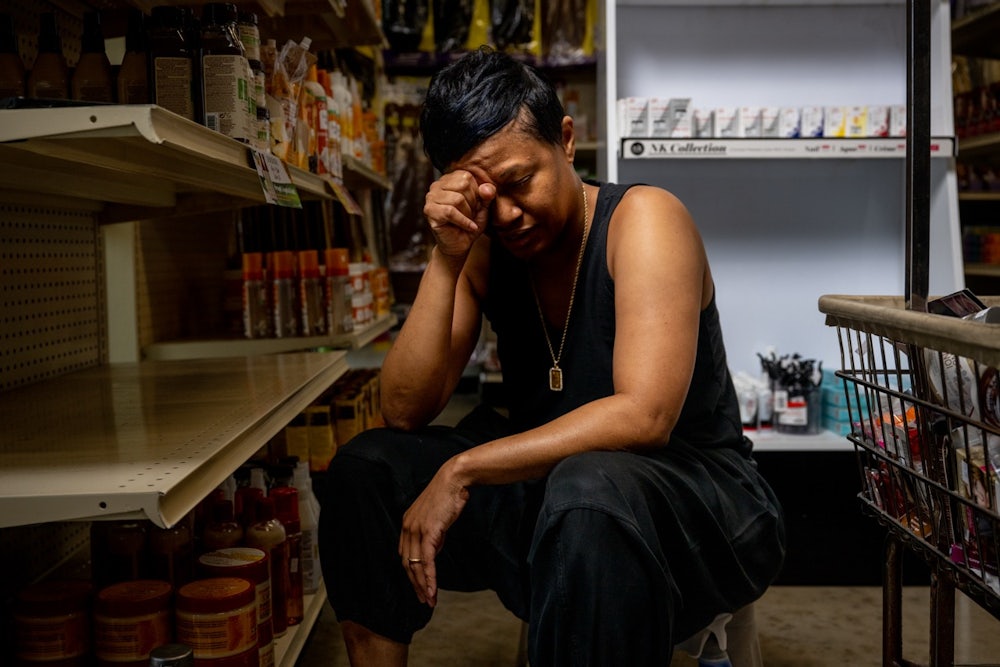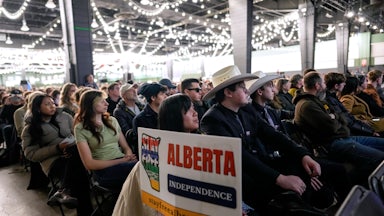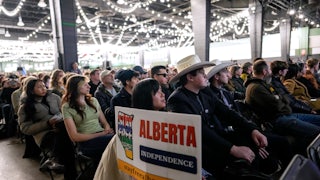Any guesses as to which White House the following statements came from?: “Inflation eases, incomes rise”; “The Administration led America to the strongest jobs recovery on record and the strongest economic recovery in the world”; “Inflation eases as job creation soars”; “Wages are rising faster than prices, and unemployment has remained at or below 4 percent for the longest stretch in 50 years.”
Was it Joe Biden’s administration, or Donald Trump’s? How about both? The first and third statements came from Biden, while the second and fourth were issued by Trump. And they all mean little to the reality of most workers’ lives. We hear president after president, over and over, cite the unemployment rate and the stock market and GDP and the inflation rate. They tell us the economy just keeps getting better and better.
Yet if you listen to workers, they tell a story of things getting worse and worse. Statistics don’t matter to people who feel like they cannot keep up with the cost of living—let alone get ahead—no matter how hard they work.
We need to trust workers’ own views of the economy.
Over the last few months, our new Dignity of Work Institute has made it our mission to listen to workers. We asked more than 1,000 workers not about politics, but about their lives—how they view success, what stands in their way, how they see the current economy, and how much and what kind of changes they want to see. What they told us diverges wildly from the standard economic measures. And it was remarkably similar across a broad range of different groups.
Despite the persistent inclinations of politicians and pundits to divide working Americans—and too often pit them against each other—there’s far more that unites workers than divides them when it comes to their views on the economy.
We talked with young urban voters, with rural and small-town white men, with moms, with Latinas, with Black men, with women without a four-year degree. And it’s clear: Americans of all different backgrounds are at boiling point—they’re all struggling in this economy, they’re angry, and they’re hungry for change.
Almost universally, people think the economy is getting worse, not better. They think the job market is getting tougher. And they don’t see anyone on their side. Four out of five participants said they didn’t feel personally financially secure.
Their definition of financial security is basic. Across gender, age, location, and race, people talked about the strain of the cost of essentials like groceries, utilities, housing, and insurance. When asked to describe what financial success looks like, one worker from Delaware said, “[to] be able to get the things that we need versus scrounging and scraping and hoping and praying.”
Out-of-control costs were a constant theme. And no matter what kind of work people are doing, they don’t expect their paychecks to keep up or to get dramatically bigger any time soon. So people turn to gig work and side jobs, they sell their possessions online, and even sell their plasma. Americans are nothing if not industrious, and they’ll do anything to make a little extra money to get by.
Workers don’t expect outside help. They no longer expect much from government—and they don’t see any politicians willing to stand up to corporate interests on their behalf.
For all the talk we hear from supposed economic experts about the complex factors that determine wages and prices, workers have pretty good intuition. They know corporate greed when they see it—and they know it’s a big reason why they can’t get ahead and their incomes don’t keep up with costs.
A delivery driver in Texas told us, “They know people need to survive off certain things... And companies know they can continue to raise prices because people need this stuff, and they’re gonna have to pay it, regardless of if they’re living in a one-bedroom shack or living in a mansion, you’re still gonna have to pay for it because you need it. So companies are going to steadily gouge you.”
Another worker, an occupational health care provider in Missouri, said, “We don’t have the option of not paying them … I mean, we have to have insurance by law. We have to have housing. We have to have food. Companies know this, and so they’re like, ‘Oh, we can jack it up another 50 bucks. They’ve got to pay it, no matter what we can jack it up another $1,000.’”
People talked about corporations using any excuse, like the pandemic, to raise prices and then to keep them high—and expressed fears that corporations would do the same thing with tariffs, using them as a pretext to permanently raise prices again.
When you listen to how workers talk in their own words, without prompting them with standard progressive or conservative policy ideas, there are important lessons there, too. Workers don’t bring up government programs as solutions to their problems. But they do talk about the need for someone—anyone—to rein in corporate greed. People say things like essentials just shouldn’t be “allowed” to cost this much.
But they’re not holding their breath for politicians to do anything about it. One worker, a pet care provider in Colorado, told us, “Big corporations themselves are only at fault because our government protects them, and they extend laws that protect big corporations over the interest of society.”
These workers think that, together, politicians and corporations rig the system to benefit the rich and powerful. That view should come as no surprise, if you look at what just happened in Congress.
The president and his lackeys just passed their marquee legislation—a Frankenstein’s monster of taxpayer handouts to corporations and the wealthy, paid for by the working class. This bill is a behemoth, and Trump and company will spend hundreds of millions of dollars over the next 15 months lying about it.
But no amount of advertising will change the fact that this bill will not address the biggest economic concerns we heard from all sorts of workers—it will make them worse. It won’t improve the job market or raise incomes. It won’t lower costs, it will raise them.
We heard over and over from workers about their anger at the cost of groceries. This bill won’t lower food prices—but it will make it harder for many working-class families to afford food. We heard anger about the price of medicine. This bill won’t lower drug prices—but it will mean tens of millions of Americans can no longer afford health insurance.
This bill is rigging the system even more and making it harder for working people to get ahead. It’s government for the rich and powerful, always at the expense of workers.
The challenge before us is to show American workers how this bill is making the economy worse—and to show people a vision of change that will actually rein in corporate greed, lower their costs, and create an economy where their hard work pays off.






